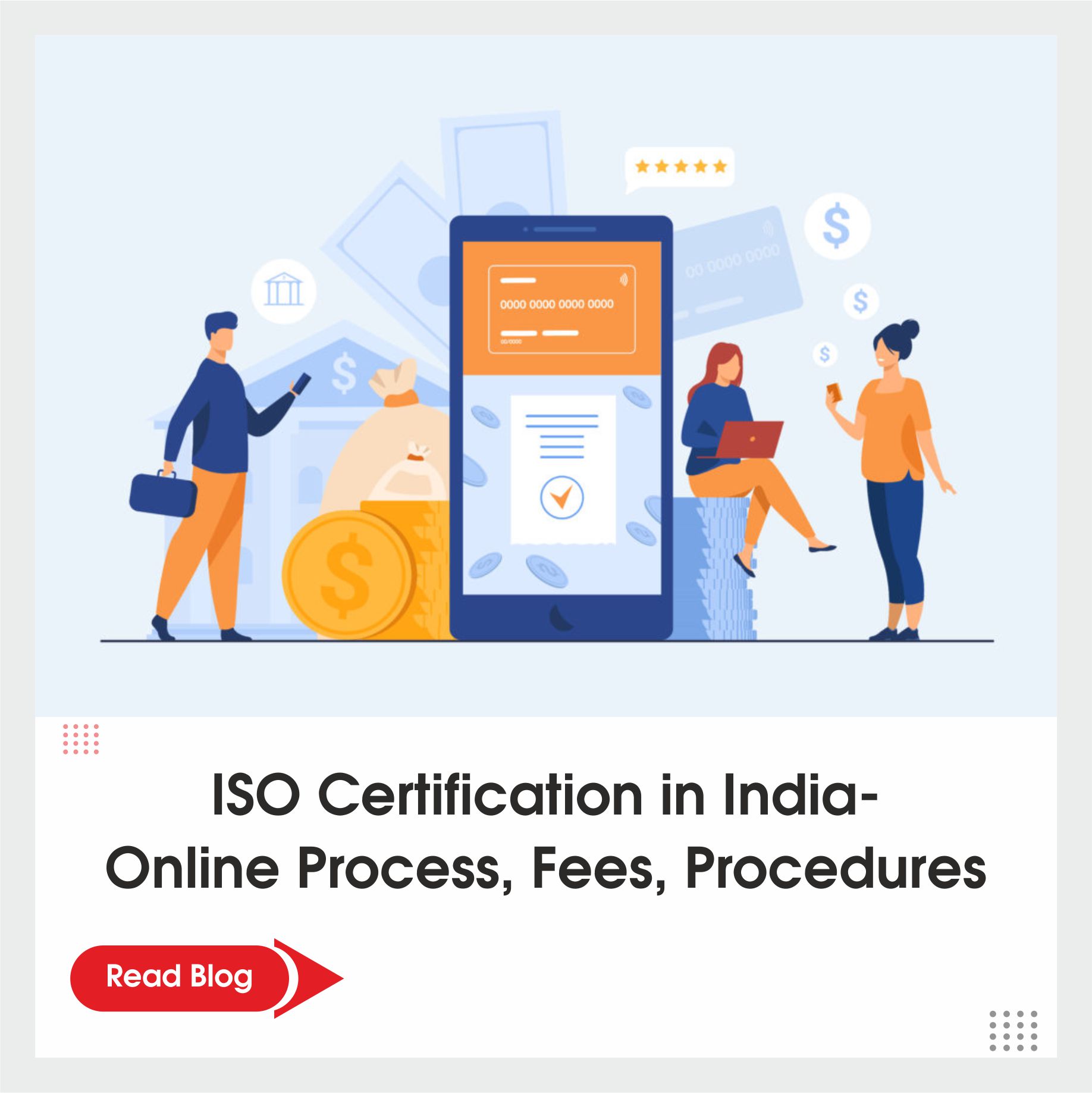The International Organisation for Standardisation (ISO) is an international non-governmental organisation; moreover, the body comprises national standards bodies. The organisation is to outline standards and frameworks for the best international and national practices. Organisations adhering to ISO standards have several advantages for businesses. Since ISO is an independent organisation, obtaining ISO Certification for a business is a noteworthy achievement. In India, obtaining ISO certification enhances a business’ efficacy and efficiency. Moreover, the ISO certification registration process ensures a stable and strong brand reputation.
What is ISO Certification? ⮯
The independent organisation ISO issues ISO Certifications. Furthermore, it exhibits a company’s compliance with any standards established by the International Organisation for Standardisation. It is an independent, non-governmental organisation that brings experts together to share knowledge and create international standards that address pressing global issues. Although promoting trade is its principal objective, process improvement, safety, and quality are also important considerations.
Types of ISO Certifications ⮯
- ISO 9001:2015 Certification for Quality Management Systems (QMS): It is one of the most popular techniques for creating, carrying out, and upholding a “Quality Management Programme” that applies to any company and is flexible enough to cater to the requirements of organisations of diverse nature and size.
- ISO 14001:2015 Certification for Environmental Management Systems (EMS): ISO 14001 provides the guidelines for implementing an environmental management system (EMS). It consists of documents, policies, strategies, processes, and procedures that set the broad guidelines for how a business engages with the ecosystem. The 2015 standards have received global approval.
- ISO 45001:2018 Certification for Occupational Health and Safety Management Systems (OHSMS): ISO 45001 is an occupational health and safety management system. It gives businesses a framework for risk management and enhances OH&S effectiveness. Leadership dedication, employee involvement, risk assessment and hazard identification, legal and regulatory compliance, emergency preparation, incident investigation, and ongoing improvement are integral components.
- ISO/IEC 27001:2022 Certification for Information Security Management Systems (ISMS): The most recent version of the information security standard, ISO 27001, was released in 2022. It outlines specific requirements while designing an appropriate management system for information security under management control. Organisations that meet the requirements may be certified by an accredited certification body after the audit process.
- ISO 41001:2018 Certification for Facility Management Systems (FMS): ISO 41001 certification for Facility Management Systems (FMS) demonstrates an organisation’s commitment to provide the required support to deliver effective services. Moreover, it helps an organisation to implement appropriate tools and controls to ensure effective facility management.
- ISO 22301:2019 Certification for Business Continuity Management System (BCMS): ISO 22301 standard provides a robust and resilient framework for organisations to sustain minimum operation even during crises or unforeseen events. The certification prepares the organisation for unprecedented events or incidents by formulating appropriate recovery and disaster management plans.
- ISO/IEC 27701:2019 Certification for Privacy Information Management Systems (PIMS): Privacy Information Management System (PIMS) mandates organisations to implement appropriate security controls to safeguard users’ personal and confidential information. However, it also requires an organisation to implement the list of security controls defined in ISO 27002 Certification.
- ISO 22000:2018 Certification for Food Safety Management Systems (FSMS): The requirements in the document are for a food safety management system (FSMS) for any organisation involved in the food chain, whether directly or indirectly. It proves adherence to relevant legal and regulatory standards for food safety.
Benefits of obtaining an ISO Certification in India ⮯
The benefits of ISO Certification are as follows:
- Businesses often make the same mistakes again because they lack a process to document good problems as they arise. Maintaining meticulous records of issues, identifying their underlying causes, and having long-term solutions ready are all mandated by ISO.
- Obtaining an ISO credential, an internationally recognised standard to ensure management methods, will strengthen your business and increase sales. Suppliers to many large communities must hold an ISO authorisation.
- When workers see that the organisation is committed to cutting waste and putting together the highest calibre, it encourages and grows their confidence. Additionally, ISO mandates that you specify job duties, close skill gaps within your company, and communicate your quality standards to employees.
- ISO requires you to track, gauge, assess, and monitor how well organisations differentiate administration systems and their working. To create performance measures that let the organisation gauge how successfully it conducts its operations.
How can an organisation obtain ISO Certification in India? ⮯
- Understanding the business requirement to select appropriate standards for your organisation
- Choose an ISO Certification Body and calculate the benefits offered by various ISO Certification providers.
Documents required for ISO Certification in India
- Applying for an ISO Certification.
- Inspection of Different Documents
- Put Together an Action Plan
- The first audit of credentials
There are two stages to the initial audit: Stage 1 and Stage 2
- Step 1: The ISO auditor identifies the assertions that an organisation needs to test. Furthermore, it encloses assessing financial statements to outline and detect potential shortcomings and other improvement areas.
- Step 2: Stage 2 audit is an on-site audit that involves reviewing and monitoring various documents, systems, and processes to monitor compliance with the specific ISO standard. Achieving the ISO Certification.
Cost of ISO Certification in India ⮯
The cost of certification varies from organisation to organisation. Therefore, it is based on many factors:
- The nature of the business and type of certification applied for.
- The certification body chosen.
- The size of the organisation, employee count and the number of processes involved.
- The risk level associated with the processes.
Conclusion ✅
It can be difficult for small businesses and microbusinesses to navigate the complexity of ISO certification. Hence, it becomes necessary for an organisation to consult an ISO certification body to understand the complexities and processes thoroughly. However, acquiring an ISO Certification offers a goldmine of benefits for an organisation, from enhancing product and service quality to easy access to the international market.



